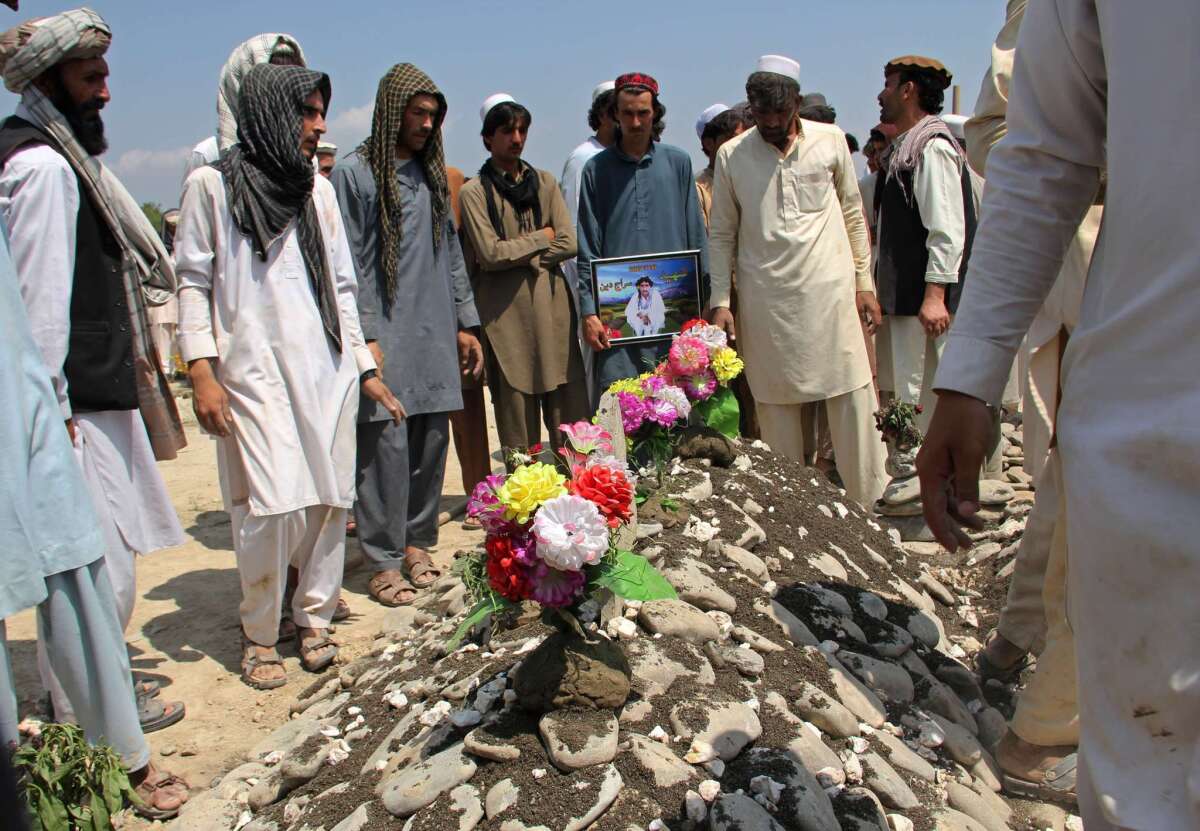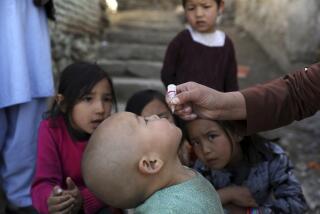U.N. condemns violence that mars end of Ramadan in Afghanistan

A group of men attend the funeral of a victim of suicide car bomb attack in Afghanistan’s Khwost province on July 13.
- Share via
Reporting from Kabul, Afghanistan — The United Nations on Tuesday condemned a spate of violence at the end of Ramadan, the Muslim holy month of fasting, that killed or injured more than 100 civilians in Afghanistan over two days.
The ranking U.N. official in Afghanistan, Nicholas Haysom, condemned the most recent incident, when a bomb exploded early Monday inside the Grand Mosque in the capital of the northern province of Baghlan where more than 500 residents had gathered to break their fast.
According to local officials, the blast injured more than 40 civilians who were awaiting a distribution of rice and oil.
“An attack deliberately targeting families, colleagues and friends praying together in a mosque is another horrific example of the conflict in Afghanistan,” Haysom said in a statement.
Though no group has claimed responsibility for the Baghlan blast, Haysom said such attacks “highlight the perpetrators’ intent to destroy lives and spread terror among the civilian population.”
The explosion came soon after a blast in the eastern province of Paktika injured five people, including a police officer, in a busy market in the provincial capital.
The deadliest incident occurred Sunday evening when a suicide bomber in a car struck a police checkpoint in the eastern province of Khwost. At least 33 people were killed, including 27 civilians, 12 of them children, and a dozen injured.
The target of the Khwost attack was initially thought to be a U.S. base that has previously housed CIA personnel.
Other violence included one roadside bomb that exploded in the southern province of Zabul, killing an Afghan working for a demining team and injuring eight, and another that left a father and son dead in Wardak province outside Kabul.
Haysom called for an immediate cessation of attacks that target civilian areas.
“The cold statistics of civilian casualties do not adequately capture the horror these bombs cause, the torn bodies of children, wives and daughters, sons and fathers,” Haysom said.
The incidents came in the days leading up to Eid festivities, which mark the end of Ramadan.
Latifi is a special correspondent.
More to Read
Sign up for Essential California
The most important California stories and recommendations in your inbox every morning.
You may occasionally receive promotional content from the Los Angeles Times.










